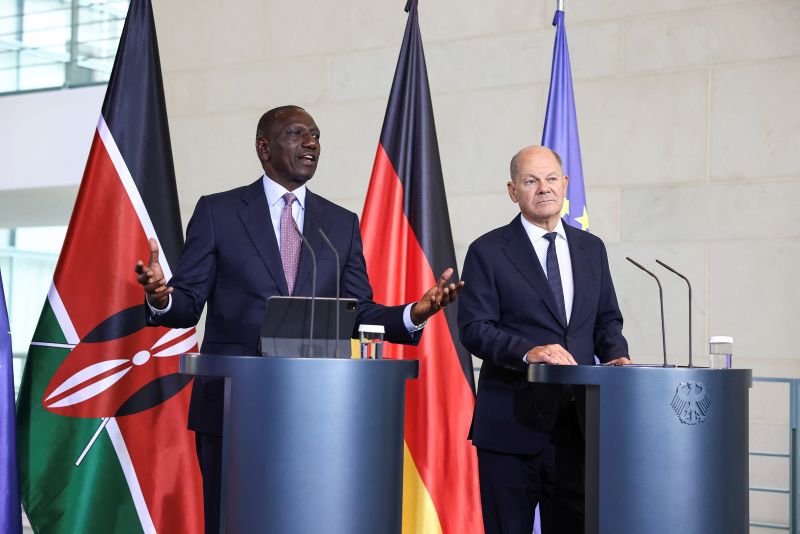The Federal Republic of Germany has embarked on progressive diplomatic pursuits with major world economies in a bid to create a healthier global economic interaction. Notably, this has been observed in the German government’s recent implementation of a controlled migration deal with the Republic of Kenya. The initiative, seen as pioneering in sub-Saharan Africa, allows for the legal and controlled migration of Kenyan workers to Germany, paving the way for increased socio-economic interaction between both nations.
The deal, officially referred to as the German Federal Employment Agency Agreement, adopted on January 1, 2020, essentially paves the way for skilled and unskilled Kenyan workers to obtain employment in Europe’s largest economy. Its creation marks a significant milestone in Kenya-Germany relations, reflecting Germany’s confidence in the quality of Kenyan human resources and Kenya’s potential contributions to the German economy.
Germany’s controlled migration agreement with Kenya is the first of its kind in Africa. It redefines the migration landscape and could potentially influence future migration deals. By making provisions for both skilled and unskilled workers, the agreement supports varied professional backgrounds, thereby diversifying the migrant workforce entering Germany, and indirectly fostering multiculturalism and international understanding in German society.
The scope of the arrangement transcends just increasing the workforce presence in Germany. It also incorporates initiatives to provide linguistic and vocational training for the migrants. This aspect of the deal especially benefits unskilled Kenyan workers, presenting them with unprecedented opportunities to learn, upskill, and become globally competitive. The training includes learning the German language, equipping them with communication skills necessary for integration into German society.
For Kenya, the deal presents a broad array of advantages as well. The remittances sent home by Kenyan workers in Germany would bolster the Kenyan economy. The acquisition of new skills by the migrants would also contribute to the development of the Kenyan economy when they return home. The migration deal also allows Kenya to actively participate in global economic affairs, thus enhancing its international profile.
The Germany-Kenyan controlled migration deal’s potential influence on future negotiations and agreements cannot be overstated. The success of this pioneering project could serve as a blueprint for other nations to emulate, promoting legal migration in a world often marred by incidents of illegal immigration. As Germany stretches its arms wide open to embrace Kenyan workers, it sets a precedent for controlled and mutually beneficial arrangements that other nations could learn from.
This deal embodies the positive potential of global economic cooperation and dialogue. It is a showcase of international rapport founded on the principles of interdependence, common benefit, and mutual respect. As the world observes how this plays out, there are high hopes for a chain reaction of similar partnerships across other nations, providing solutions to some of the toughest global migration challenges. For now, it’s a win-win situation for both Germany and Kenya, demonstrating the possibilities within international labor agreements.
On human and social—as well as economic—levels, the deal signifies an unprecedented leap in Kenya-Germany relations and represents a dawn of hope for both nations. By fostering the free movement of people, ideas, and skills, this controlled migration deal acts as a beacon of progress in a world increasingly characterized by xenophobia and nationalism. The German government deserves applause for this strategic move. However, its success largely depends on its implementation and the commitment of both participating countries.




